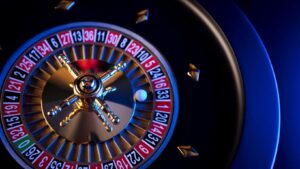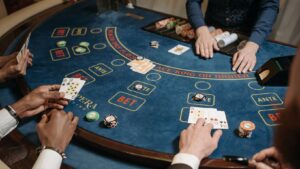Table of Contents
ToggleFrom Chess to StarCraft, strategy games have long captured people’s attention. More recently, titles like Age of Empires IV and XCOM 2 have drawn players in with high-stakes choices and fast-paced play. Though they differ in appearance, these games all challenge the mind to think critically, plan ahead, and act quickly.
What elevates them beyond pure entertainment is how they sharpen mental skills such as recognising patterns, managing risk, and staying focused under pressure. These games push players to remain clear-headed when time is short and decisions are complex. As daily life becomes more fast-paced and uncertain, the lessons drawn from these digital arenas grow increasingly relevant.
Let’s explore what strategy games can teach us about handling risk, spotting patterns, and making better decisions—even when time’s running out.
Managing Risk Without Freezing Up
In strategy games, every move carries some level of risk. Players quickly learn that inaction can be more damaging than making the wrong move. Rather than fear mistakes, successful players shift their mindset to focus on timing and potential gains.
This approach to risk translates well into real life. People often wait too long for the “perfect” decision, but games teach that timely action—even if imperfect—can create momentum. With practice, players become more comfortable evaluating their options quickly, building a stronger sense of control in uncertain moments.
Playing blackjack real-time takes this idea even further. These experiences blend chance with urgency, forcing players to make quick decisions on the spot. While luck plays a part, players must still read the game’s rhythm, assess the odds, and act before the opportunity slips away.
This kind of pressure-based judgment sharpens focus and strengthens decision-making in high-stakes environments.
Understanding risk isn’t always about being bold—it’s about knowing when to go all-in and when to pull back without letting fear paralyse your thinking.
Learning to Act with Limited Information
Most strategy games don’t lay out all the answers. Players often must act without knowing their opponent’s full plan. That uncertainty forces them to leap with incomplete data.
What makes this useful is the habit it builds: players get comfortable making choices based on the best available information over time, rather than waiting for perfect clarity. This skill is especially valuable in fast-paced real-world scenarios, where delay can mean missed chances.
In school or work settings, decisions often need to be made quickly. Strategy games reinforce the idea that hesitation can sometimes be riskier than action. Thinking clearly in the face of ambiguity becomes a competitive advantage.
Reading Patterns to Predict Moves

Pattern recognition is essential in nearly every strategy game. Skilled players don’t just react; they track behaviour, anticipate outcomes, and predict future actions based on repeated cues. This foresight is what separates casual players from seasoned strategists.
Beyond gaming, this ability is incredibly useful in daily life. People who notice trends early can adapt more quickly, whether managing finances, spotting misleading information, or navigating team dynamics at work. Recognising patterns allows for proactive decisions instead of always playing catch-up.
Learning to read patterns also sharpens memory and focus. Players train to notice when something repeats, when it deviates, and what might signal next. With repetition, this skill becomes second nature.
Seeing More Than What’s on the Screen
Winning a strategy game often involves interpreting subtle cues such as the hesitation before an attack, a resource spike, or an unexpected maneuver. These small details can hint at an opponent’s next move and give observant players the upper hand.
Over time, gamers become adept at picking up on these signals. That habit of close observation carries over into real life, where reading between the lines—in tone, timing, or body language—can provide critical insight into a situation.
Attention to detail offers a serious edge. While others react only to what’s obvious, players trained to spot subtle shifts tend to stay a step ahead. More than just guessing, it’s about developing heightened awareness.
This level of awareness is invaluable in fields that demand quick judgment and strong people skills, such as customer service, logistics, or team management.
Building Mental Agility Through Repetition
Quick thinking isn’t an accident. It’s a muscle built through repetition. The more often players face high-pressure decisions, the better their brain gets at staying calm and focused. It’s mental strength, built round by round.
But speed alone isn’t enough. Strategy games also teach adaptability. One moment you’re ahead; the next, you’re scrambling. This constant back-and-forth forces players to switch tactics, reframe problems, and stay flexible under stress.
With enough exposure, players begin to respond with clarity instead of panic. They become accustomed to making fast decisions without losing control—an invaluable skill during exams, interviews, or sudden real-life challenges.
In fast-moving environments, it helps to have a brain that’s been through hundreds of trial runs. Strategy games provide that training in a repeatable, low-risk setting.
Final Words
Strategy games aren’t just about winning—they’re about thinking. They teach people to handle pressure, recognise patterns, and take calculated risks. These gaming skills can easily be transferred to actual life skills.
It’s remarkable how much real-world insight can come from a few matches on screen. Perhaps that’s why strategy games remain so popular: they challenge and train the mind, all while keeping things fun.




